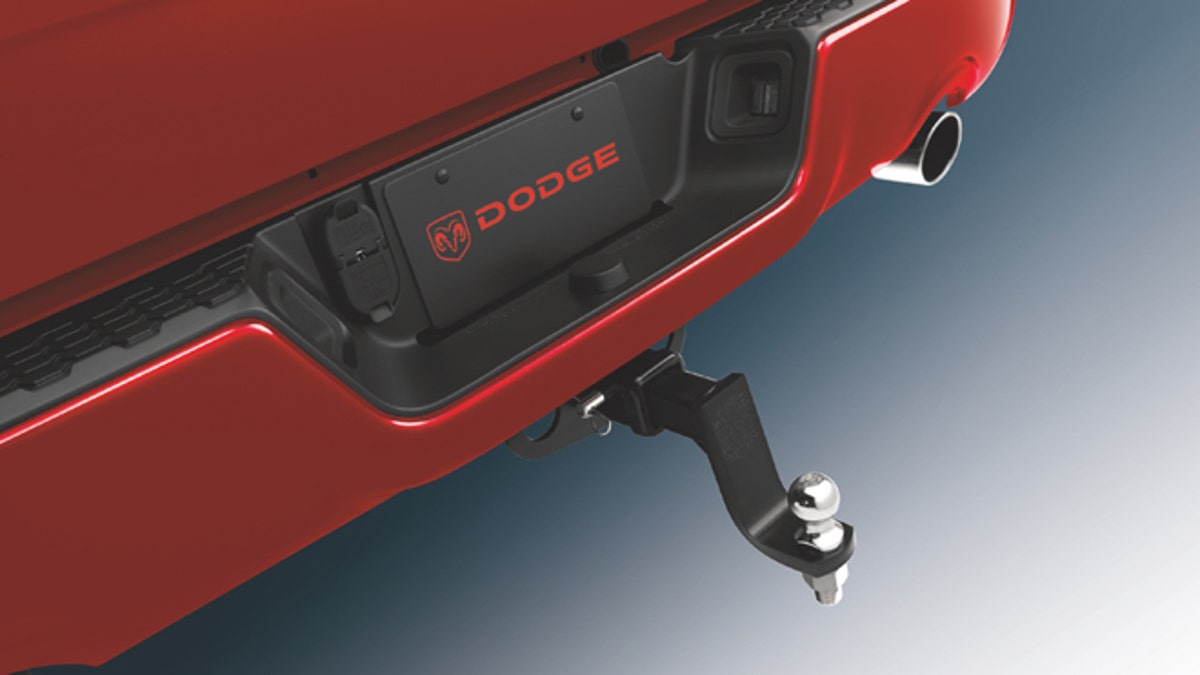
(Dodge)
Having the right hitch is the key to successfully and easily towing anything from a boat to a camping trailer. Here is a brief guide from selecting to properly installing the hitch.
How do I know what kind of hitch I need?
To determine your hitch, you first need to determine your towing situation and needs. What are you going to be towing and how far are you going to tow it? Consult your vehicle's owner's manual for your car's towing capacity and compare that to the compliance certification label, which is usually a sticker in driver's door sill area.
There are five main variations of hitches (Class I through Class V), and they are classified by their gross trailer weight (GTW), or the weight of a fully-loaded trailer. The classification breakdown is as follows:
Class I - 2,000 pounds GTW
Class II - 3,500 pounds GTW
Class III - 5,000 pounds GTW
Class IV - 7,500 pounds GTW
Class V - 10,000 pounds GTW
Check out Hitchinfo.com for more information on the different classes of hitches.
Calculating the GTW and tongue weight
You can get the GTW by using a vertical scale, which you can find at a nearby weigh station. Carroll Lachnit, the features editor of Edmunds.com, says that you should make sure you look for a hitch that is right for the GTW and the tongue weight, which is the downward force exerted on the hitch ball. The tongue weight is usually 10 to 15 percent of the maximum GTW.
Finding and installing the hitch
Lachnit says that many pickups and SUVs come with a Class III hitch, which is also the most popular class. However, if your vehicle does not have a preexisting hitch, you need to install it yourself or go to a professional. "Most hitches bolt to the vehicle, and while some are welded, a bolt-on installation is the method preferred for attachment," Lachnit explains.
You should be able to find a hitch at your local auto parts shop. You can also try a U-Haul center or online. Make sure you do your research before going to an installation shop looking for a hitch.
"We'd recommend -- especially on a compact or half-ton pickup if not already equipped -- going straight to a Class III hitch, which is enough to tow most campers, car trailers and small- to medium-sized boats," she says.
If you are shopping around for a new vehicle, Lachnit suggests considering the tow package option when you get a truck or SUV. The factory-installed tow package, she says, may include upgraded engine and transmission cooling, changes to the shift timing of the transmission and an alternate axle ratio.
"Electrical system upgrades are also usually included for easy brake light and turn signal hook-up to the tow vehicle, and may even include built-in support for electric trailer brake controllers," she says. "The manufacturer will have integrated all of these changes to give you the best and most reliable towing experience."
You may be able to get some help with identifying and installing the proper tow hitch from your dealership's service department if you did not go with the tow package.